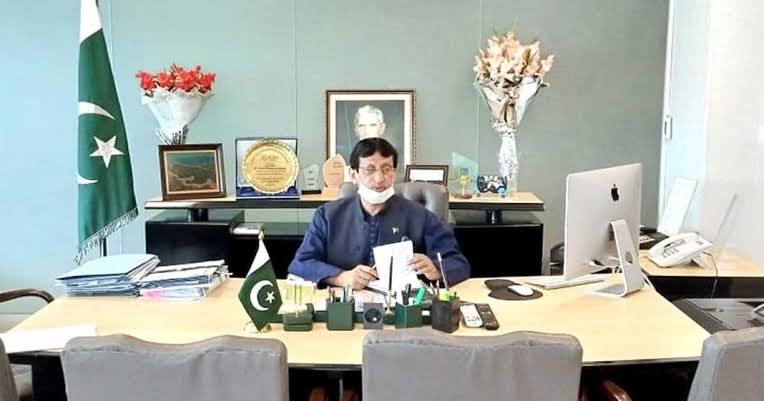In response to the growing threat of cybersecurity and frequent hacking of data systems, including those of national institutions, the federal government has increased its focus on countermeasures, and it will soon launch a national artificial intelligence (AI) policy, which industry analysts believe will help secure primarily the digital banking system.

Syed Aminul Haq, the Federal Minister for Information Technology and Telecommunications, announced the news while speaking at a BlockChain conference in a local auditorium.
He was certain that cybersecurity and AI expertise had become critical for the country’s economic system to run smoothly and effectively.

“Cybersecurity is the first critical pillar of the IT Ministry’s Digital Policy 2021,” he stated. “Pakistan’s digital revolution is linked to cybersecurity. This year, Pakistan’s federal cabinet passed the country’s first cybersecurity policy. And the administration is now completely committed to implementing a national AI policy as soon as possible.”
He alluded to previous cyber-attacks on the country’s banking systems and databases, which he said could not be hacked.
The minister’s remarks come only days after a cyberattack on Pakistan’s National Bank nearly paralysed the country’s digital and automated banking systems.
The bank said there was no data leakage or financial loss as a result of the incident, but it took weeks to repair the system.
According to cybersecurity and artificial intelligence specialists, if the government is successful in enacting and executing comprehensive rules in these two sectors, the country’s banking industry and financial firms will be among the primary winners.

He stressed the importance of information technology in economic development, saying that a leader is one who anticipates the needs of nations in the future. The IT ministry has taken significant measures in making Pakistan digital.
“By moving work to tablets and Android cell phones, the federal cabinet has already gone paperless,” the federal minister claimed. “This government will also make Parliament’s governance paperless.” He emphasised the importance of strong collaboration between academia, industry, and the IT ministry in bringing innovative technologies in Pakistan while trying to bridge the gap between industry and academia.
He believes that the distance between academia and industry needs to be bridged, and that IT academics should begin supervising industrial initiatives as a result of an agreement between industries and universities.
Mr Haq highlighted the IT ministry’s willingness to collaborate with industry and academics through a trilateral agreement, and to present the cabinet with the proposals of a committee on data security, cybersecurity, and collaborative methods.
Our ministry is dedicated to offering 3G and 4G services to Pakistan’s 60% young population, particularly in distant areas far from urban centers,” he added.
The conference included speakers from Europe, America, and the Middle East, in addition to Pakistani professionals. They discussed BlockChain technology and shared ideas and experiences.
Dr. Khalid, the chairman of IR-Next, afterward congratulated the federal minister for pioneering IT-related activities. The IR-Next team received awards as the conference came to a close.
IR-Next is a solution provider that works with both the public and private sectors on blockchain, IoT, and AI.
A blockchain is a data storage technology that makes it difficult or impossible to change, hack, or cheat the system.
A blockchain is simply a digital ledger of transactions that is duplicated and disseminated across the network of computer systems that make up the blockchain.
- Misleading Video Alters Prime Minister Shehbaz’s Speech Targeting Political Rival, Not His Party - 21/04/2024
- ATC Grants Three-Day Remand for Suspects in Ichhra Bazaar Harassment Case - 19/03/2024
- Pakistan, India, and Bangladesh Lead World in Severe Smog Crisis, Exceeding WHO Guidelines - 19/03/2024


